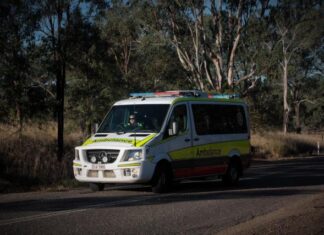Queenslanders are being encouraged to stay safe during hotter than average temperatures this week.
This week The Bureau of Meteorology has issued various heatwave warnings across Queensland, with maximum temperatures observed to climb to the mid to high 30s.
Earlier in the week, from Tuesday to Thursday, the heatwave warning was issued for most of the state including the North Burnett, whereas by Friday 17 January to Sunday 29 January the heatwave was predicted to be isolated to northern Queensland.
On Thursday, 16 January, The Bureau recorded the hottest day of the year so far in the Burnett with a maximum of 38.1 degrees at the Gayndah Airport, meanwhile at the Kingaroy Airport 34.1 degrees was observed.
Looking ahead, The Bureau forecast for Kingaroy on Friday, 17 January a maximum of 30 degrees and on Saturday, 18 January a maximum of 28 degrees.
Next week the Bureau predicts the temperatures in Kingaroy will heat right up to 35 degrees next Wednesday 22 January, and 37 degrees by next Thursday 23 January.
Meanwhile in Gayndah, temperatures of up to 32 degrees can be expected for Saturday, and for the heat to increase over next week with maximum temperatures of 38 degrees expected for Wednesday 22 January and 39 degrees for Thursday, 23 January.
Queensland Ambulance Service spokesperson Kent Jackson shared advice on staying cool amongst the summer heat.
“There’s some simple measures to try and stay safe in this heat,” he said.
People should wear hats, stay in the shade, in an air conditioned room or under a fan when possible.
Seek a place to keep cool, such as your home, a library, community centre or shopping centre.
Maintain a cooler temperature in your home by closing your windows, drawing your blinds, curtains or awnings early in the day to keep the heat out.
People should ensure they are properly hydrated, keeping a water bottle close by.
“Drinking cool water and taking it easy, not engaging in any strenuous exercises in the peak of the day,” Mr Jackson said.
Mr Jackson said the most at risk in this heat included the elderly, young children, pregnant and breastfeeding mothers, and people with existing medical conditions.
“With this cohort of people there is an increased risk of exacerbated medical conditions through suffering heat-related illnesses – we advise people to take particular care,” he said.
“Signs of more serious heat-related illness include people who have experienced nausea, vomiting, shortness of breath, dizziness, seizure activity and altered levels of consciousness.
“That’s when we want to pull them out of the heat and contact triple 0 for further assessment and treatment.”
Mr Jackson warned all Queenslanders to be wary of the heat, not just those most vulnerable.
“Particularly with young, healthy people, they might not be listening to their bodies and forgetting to drink water -always take a water bottle with you,” he said.
Queensland Ambulance Services expects an increase in heat-related callouts over the coming days.








